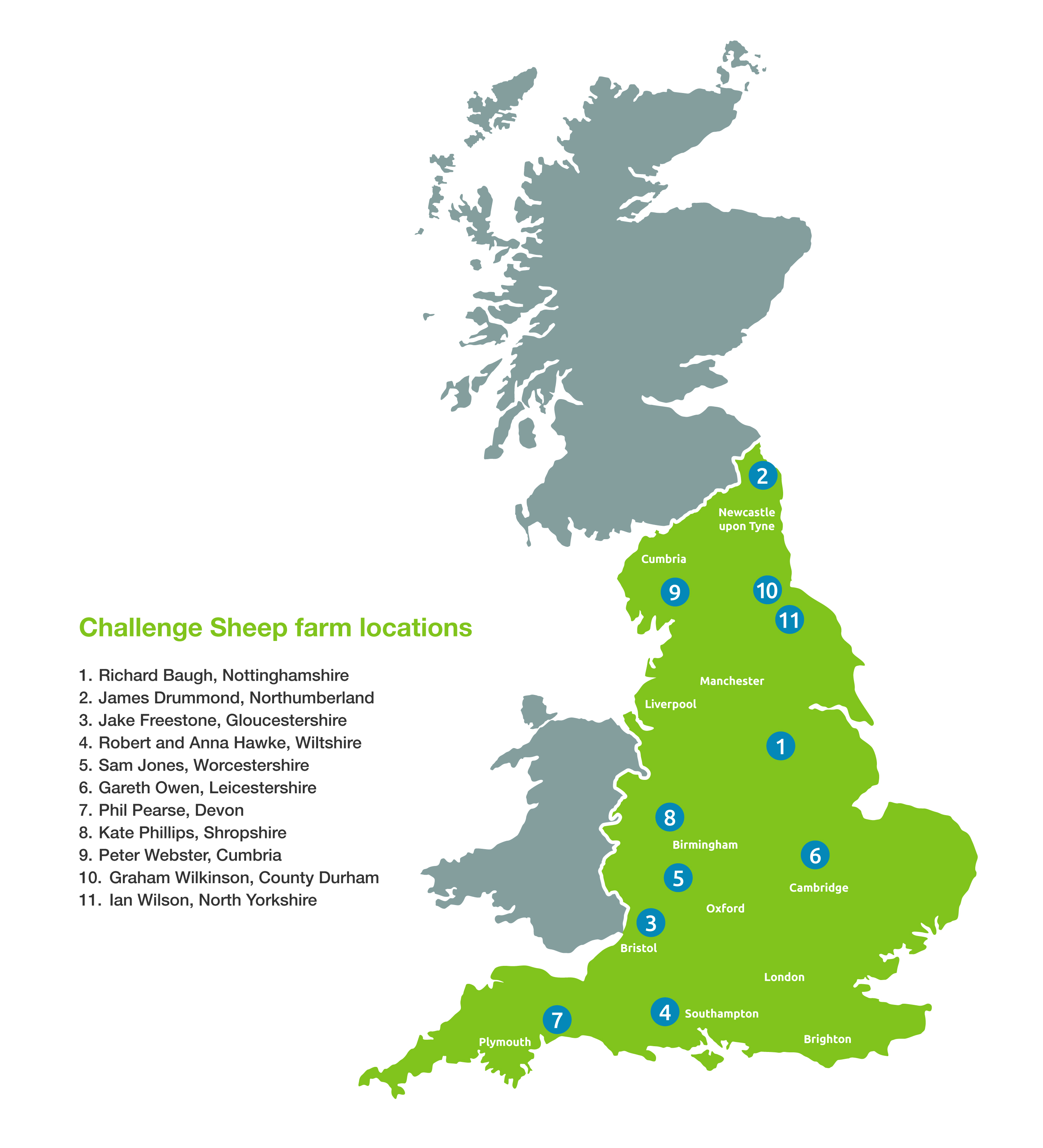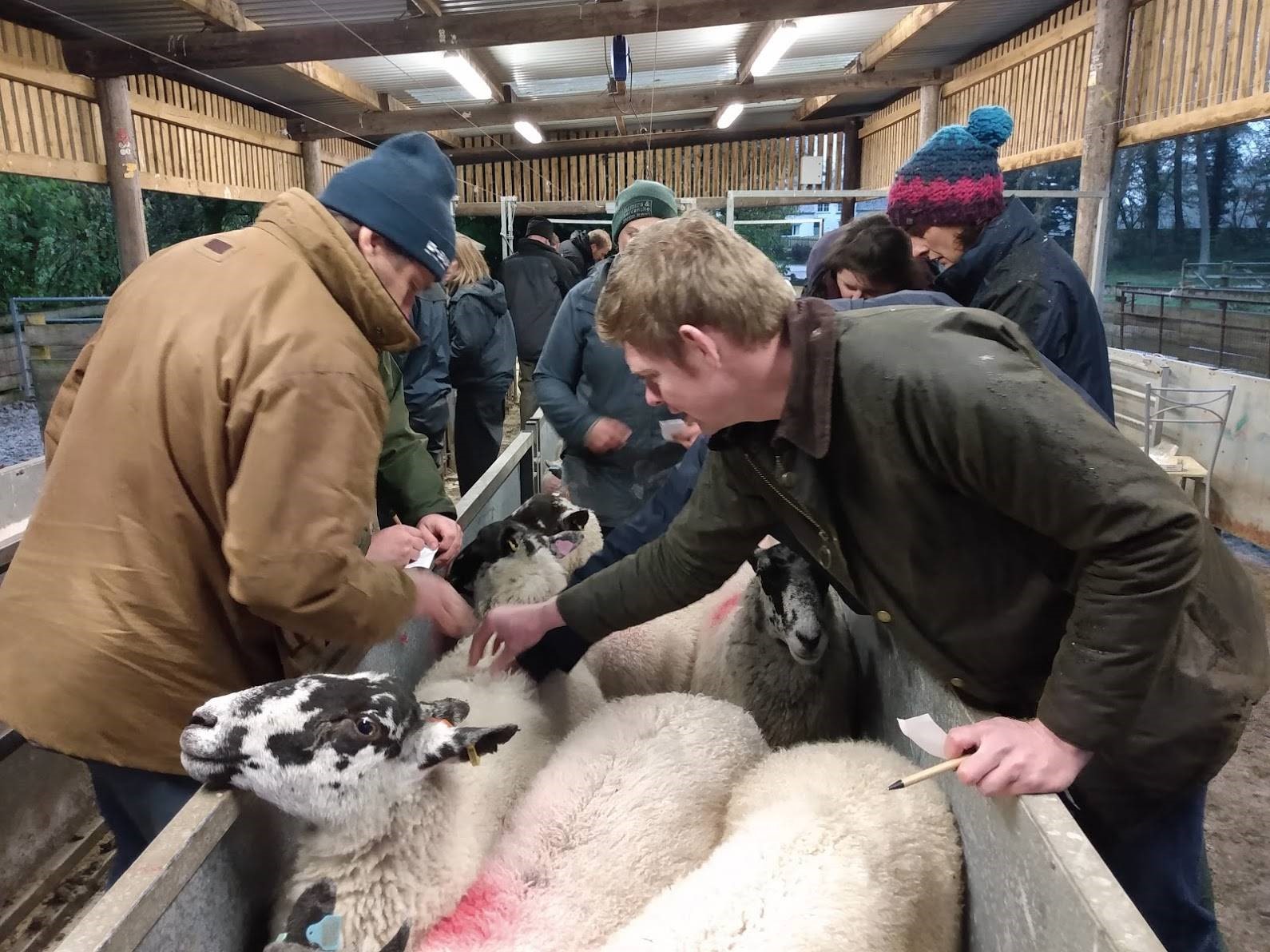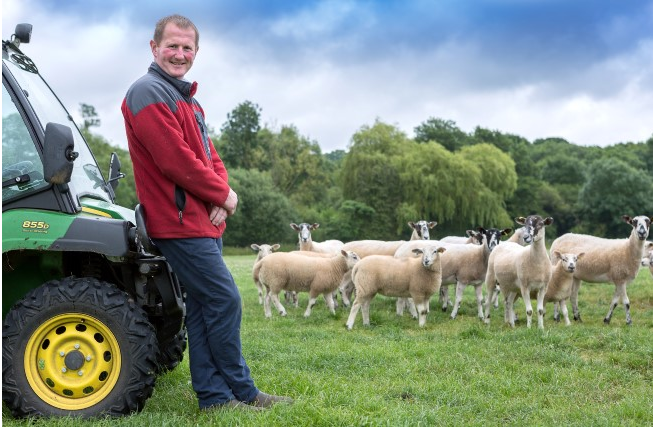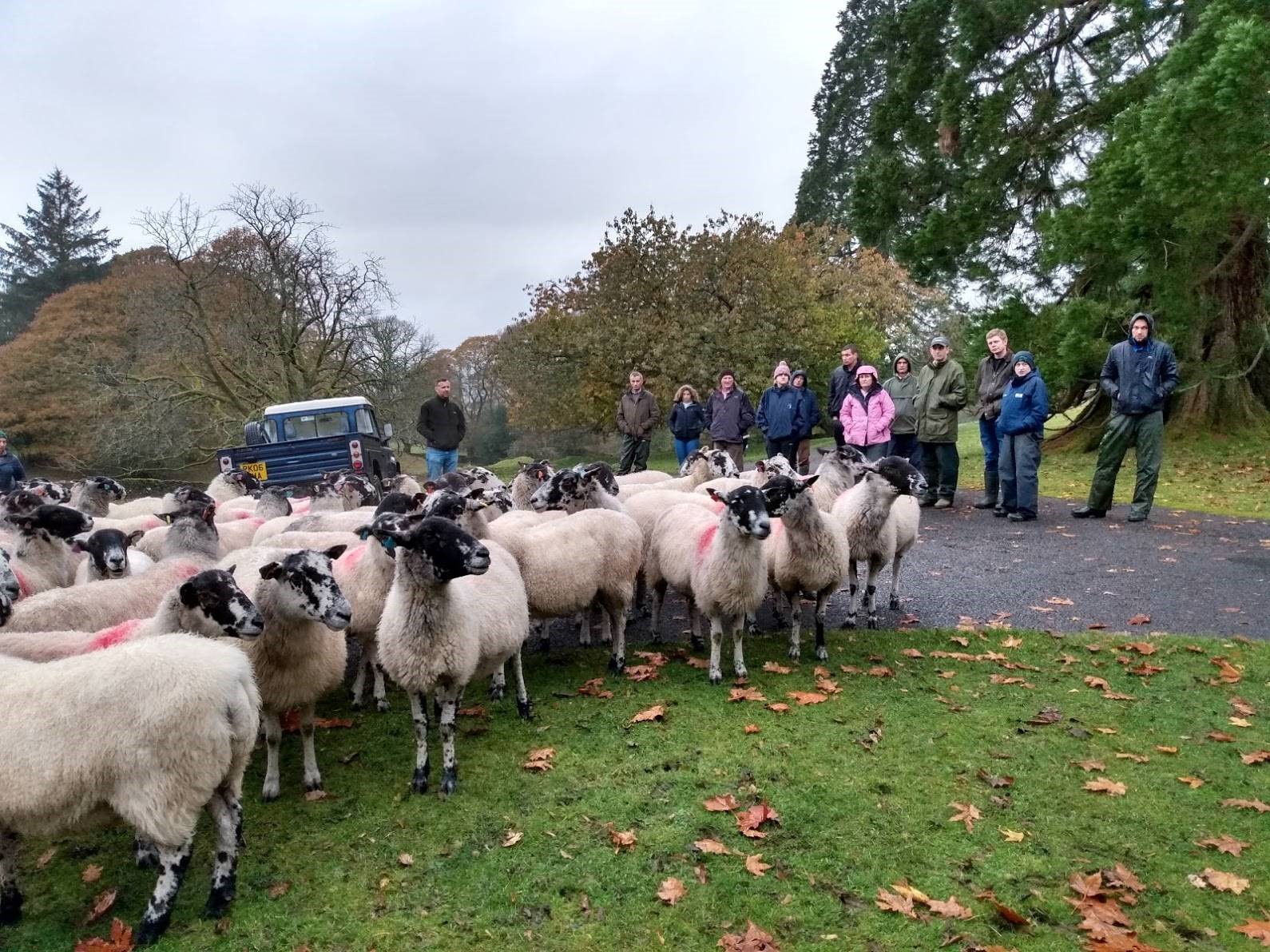- Home
- Meet the Challenge Sheep farmers
Meet the Challenge Sheep farmers
Meet AHDB's 11 Challenge Sheep farmers who have been involved in the research project and continue to share their data to be reviewed by our team of specialists. They are located around England to cover different types of farming systems and in return for sharing their data they receive feedback and advice on managing ewe replacements.

1. Richard Baugh, Nottinghamshire
Farming in partnership with his father in Nottinghamshire, Richard is a third-generation farmer at Woodside.
The farm runs 500 mule ewes, 140 Llyen-cross mule shearlings, 140 Llyen-cross mule ewe lambs and 80 Aberfield ewe lambs.
Richard manages the day-to-day running of the farm business and his father is employed as a full-time agricultural lecturer at the local college.
Richard has joined the Challenge Sheep project so he can get more out of the data he currently collects. He hopes the information he receives through the project will help him to make decisions.
The farm also has a pig unit, which has a successful hog roasting business. Richard wants to start pushing the sheep side of the business to build it to the same level as the pig enterprise.

2. James Drummond, Northumberland
James farms at Lemmington Hill Head in Northumberland. He manages 1,000 Aberfield and Aberfield-cross sheep and is phasing out the old stratified flock of North Country Cheviot, halfbred and Cross Suffolk ewes.
As well as taking part in the Challenge Sheep project, James is currently part of AHDB’s Progressive Sheep group. Alongside examining the effect on lifetime productivity of ewes, James wants to ensure he rears healthy, functional and profitable sheep. Increasing the farm output and breeding easily managed sheep is also an important focus.
In 2015, James completed a Nuffield Scholarship on increasing ewe efficiency and spent time in New Zealand and Australia to study their ewe production systems.
-1.jpeg)
3. Jake Freestone, Gloucestershire
Jake is farm manager at Overbury Enterprises in Tewkesbury, alongside Tom Chapman, who is the farm shepherd and manages the day-to-day operations of 1,200 ewes.
Jake hopes that the Challenge Sheep project will allow him to gather more information from the flock to help him better understand culling and the reasons why some sheep perform better than others. He hopes the project will help to keep his farm sustainable post-Brexit, as well as assist in futureproofing the enterprise.
Through farmer-to-farmer learning, Jake is seeking best practice advice to help reduce replacement rates, increase scanning percentage, finish more lambs earlier and learn how he can adapt to outdoor lambing.
JPG.JPG)
4. Robert and Anna Hawke, Wiltshire
Robert and Anna Hawke operate their farming business from Throope Cottages, Bishopstone, near Salisbury.
They are first-generation farmers and started farming 12 years ago. They have been collecting data for more than 10 years and want to utilise it further to improve flock performance.
One of the main reasons for joining the Challenge Sheep project is the opportunity to access the exchange of information that will have benefits not only for their farm, but also for other farmers.
..jpg)
5. Sam Jones, Worcestershire
Sam farms at Brookhouse Farm in Worcestershire. The farm has been in the family for around 90 years and Sam was shortlisted as Farmers Weekly’s Sheep Farmer of the Year in 2017.
Sam wanted to get involved in the Challenge Sheep project because he’s keen to gather as much information as possible that will enable informed decisions to be made on the farm. He is a real advocate of gathering data and being able to interpret it to improve the success of the business.
Sam hopes Challenge Sheep will help him find simpler ways to interpret the data already collected and is looking forward to learning from the other farms involved in the project.

6. Gareth Owen, Leicestershire
Gareth, together with his family, farms at Launde in east Leicestershire. He has a flock of Aberfield-cross ewes and focuses on a forage-based system, selling all lambs deadweight.
Gareth supplies the on-farm butchery run by Gareth’s brother as well as a national processor. The farm was an early adopter of electronic identification technology and, having been part of the Sheep KPI project for four years, is accustomed to collecting data to aid flock management.
There were questions raised from the KPI project and it is hoped that Challenge Sheep will continue to provide answers, working with industry experts to help increase the farm’s profitability.
.JPG)
7. Phil Pearse, Devon
Phil Pearse manages the sheep flock at Park Farm in Devon; his family have been farming in the area since 1650.
Phil is a keen sheepdog trainer and is passionate about bringing innovative ideas to the sheep industry. He is looking forward to comparing his data with those of other farms and having the opportunity to discuss best practice and innovation in livestock farming.
Phil has a keen interest in genetics and wants to harness the knowledge and expertise from AHDB, as well as his peers involved in the Challenge Sheep project, to drive efficiency and improvement.
.PNG)
8. Harper Adams, Shropshire
Scott Kirby is the farm manager at Harper Adams (HAU) and Tony Offland is the flock manager. HAU has a flock of 1,000 breeding ewes and, this year, over 300 shearlings and 65 ewe lambs will be mated. The flock has recently expanded and the team is interested in gaining a greater understanding of the genetic base of the ewes – particularly in terms of ewe longevity.
The team at HAU already collect a wealth of data for pedigree recording with Signet and believe the Challenge Sheep project will assist the university with the latest educational teaching around ewe performance and management.
JPG-1.JPG)
9. Peter Webster, Cumbria
Pete Webster contract-farms Matson Ground Estate in Windermere, running upland beef and sheep enterprises.
As a first-generation farmer, Pete wants to ensure the sheep flock delivers financially. Prior to the Challenge Sheep project, Pete was thinking about independently analysing the lifetime of his ewes, but as soon as he heard about the project, he thought it would make sense to share expertise with others.
Pete wants to ensure that solid foundations are made in establishing the performance of the flock and to continue to make the business both profitable and sustainable. He also wants to determine whether he is using the right breeds and management to achieve this on farm.
Podcast: #ColostrumIsGold - Pete Webster shares his colostrum management advice
.PNG)
10. Graham Wilkinson, County Durham
Graham Wilkinson, with his family, manages a hill farming enterprise at Bollihope Shield Farm in County Durham. Together, they look after 700 mainly Swaledale ewes and 25 Aberdeen Angus suckler cows on 110 hectares, plus grazing rights on Bollihope Common.
Farming friends who have worked on projects with AHDB before encouraged Graham to apply to be part of Challenge Sheep, as they felt he was a good fit for the project.
Graham has been electronic recording since it began, but feels he can get more out of the data with the guidance of the project. He also wants to give his sons the opportunity to understand the new technology so they can ensure a good future for the farm.

11. Ian Wilson, North Yorkshire
Searchlight Farm has been in Ian’s family since 1932. It is a mixed farm with arable crops and 500 ewes. They have been in the process of building a new farmstead on a green field site.
For Ian, the aim of joining the Challenge Sheep project is to learn from others, compare his farming practices with other farmers in the area and discuss best practice.
Ian wants to be able to share ideas and see the similarities and differences between his farm and others. By gathering the data, Ian also hopes to improve the efficacy of the flock, with a particular focus on ewe fertility.
.JPG)

